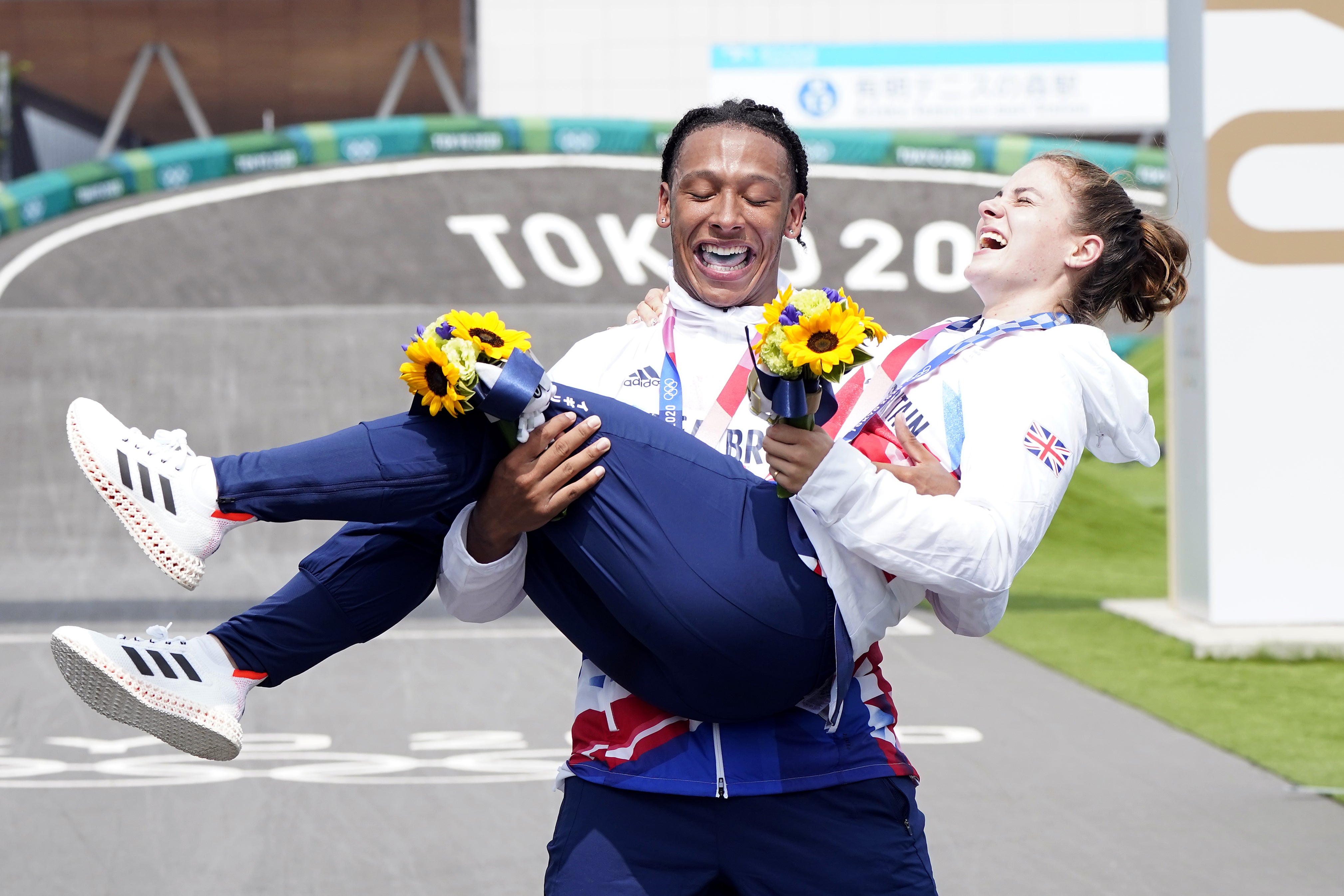Pre-Tokyo plan for change helps put GB cycling team top of the medals table
Diversifying into BMX and Mountain Bike reaped rewards with three of GB’s six golds coming from those disciplines.

Your support helps us to tell the story
From reproductive rights to climate change to Big Tech, The Independent is on the ground when the story is developing. Whether it's investigating the financials of Elon Musk's pro-Trump PAC or producing our latest documentary, 'The A Word', which shines a light on the American women fighting for reproductive rights, we know how important it is to parse out the facts from the messaging.
At such a critical moment in US history, we need reporters on the ground. Your donation allows us to keep sending journalists to speak to both sides of the story.
The Independent is trusted by Americans across the entire political spectrum. And unlike many other quality news outlets, we choose not to lock Americans out of our reporting and analysis with paywalls. We believe quality journalism should be available to everyone, paid for by those who can afford it.
Your support makes all the difference.Great Britain’s cycling team ended up in a familiar place at the end of the Tokyo Olympics – top of the medal table.
Twelve medals, six gold, matched the tally from Rio with cycling once again the biggest single contributor to Team GB’s overall medal count.
“To be able to come here and equal the number of medals and gold medals from Rio, to be able to leave being the only country in history that’s won a gold medal in every Olympic discipline, with Jason and Laura being the kings and queens of sport, let alone cycling, and to have a team of young riders coming through bodes well for Paris, for LA, it’s fantastic,” said performance director Stephen Park.
Attempts to lower expectations were not entirely wide of the mark: there were four more events at these Games, 22 compared to 18, from which to take those medals, and the dominance in the velodrome was certainly challenged if not quite ended – GB were top of the medal table on the track too.
Losing both the team pursuit titles was galling, if not unexpected on the men’s side.
But the Tokyo Games will go down as a success for British Cycling relief after a period of difficult questions and the ugly backdrop of Richard Freeman’s medical tribunal.
Delivering this success was down to the same sort of calculated planning that brought glory in Beijing, London, and Rio, but this time it was about planning for change.
With rivals catching up fast or even pulling away on the track, GB knew they must diversify into BMX and mountain biking – and struck gold faster than expected through Tom Pidcock, Beth Shriever and Charlotte Worthington, among the new faces who can help British Cycling reach new communities.

They changed tack in the velodrome too. Britain had previously made the timed events their stock in trade for over a decade, seeing a race against the clock as more controllable.
But as those titles were surrendered in Izu, Britain instead triumphed in the more chaotic arena of the bunch races – first Matt Walls in the omnium before Laura Kenny and Katie Archibald lit up the first women’s Olympic Madison – reward for putting greater emphasis on the opportunities in these areas.
“We were confident, but with so little racing we didn’t know what we would be met with,” Park said.
“What we did know is that all our riders would come away from here having recorded their best ever performances. Whether those performances would be good enough for medals was the question.”
Park, the ex-sailor who took over after the Rio Games, should take a chunk of the credit, not least for seeing that funding was redirected into the new disciplines that delivered success.
He has received relatively little praise during his tenure to date, more often facing sniping from the sidelines, but as he celebrated Jason Kenny’s record-breaking seventh career gold on Sunday, he had a challenge for his critics.

“If you want to keep sniping, feel free to give me a call,” he said. “I’ll make sure there’s a bike available, rock up and have a go, because none of these people, riders or athletes, none of them would have beaten anyone who was on the track here. Not even close.”
Credit too goes to two other Brits – Brian Cookson and Martin Gibbs, who in their former roles as president and director general of the UCI respectively were the ones who pushed for the addition of BMX freestyle and the return of the Madison in the velodrome.
Those decisions ultimately paved the way for four medals, two of them gold, for Team GB.
A postponed Games means no time to rest – the Paris cycle has already begun, but they will be approached with a sense of optimism.
“We continue to build,” Park said. “We have got plenty of new shoots.”